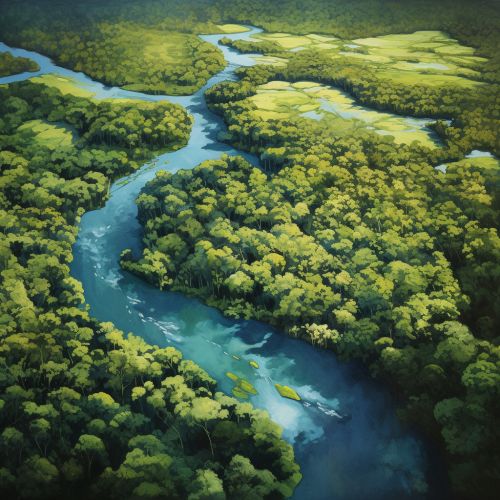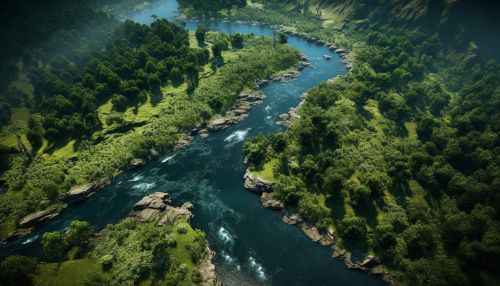Climate Change and Water Resources
Introduction
Climate change and water resources are two interconnected topics of immense global significance. The changing climate has a profound impact on the availability, quality, and quantity of water resources, affecting both human societies and ecosystems. This article delves into the complex relationship between these two phenomena, exploring the effects of climate change on water resources and the implications for the future.


Climate Change and Its Impact on Water Resources
Climate change is primarily caused by human activities, particularly the burning of fossil fuels and deforestation, which increase the concentration of greenhouse gases in the Earth's atmosphere. These gases trap heat, leading to a rise in global temperatures, a phenomenon known as global warming. This warming trend has a range of impacts on the Earth's water systems.
Alteration of the Water Cycle
The water cycle is a fundamental process that circulates water through the Earth's atmosphere, surface, and subsurface. It involves evaporation, condensation, precipitation, and runoff. Climate change affects each of these stages, altering the dynamics of the water cycle.
Increased temperatures lead to higher rates of evaporation, which can intensify drought conditions in some regions. Conversely, warmer air can hold more moisture, potentially leading to more intense rainfall events and flooding in other areas. Changes in precipitation patterns can also affect the timing and volume of runoff, impacting river flows and groundwater recharge.
Impact on Snowpack and Glaciers
Climate change also affects snowpack and glaciers, important sources of freshwater for many regions. Warmer temperatures can lead to earlier snowmelt, altering the timing of runoff and potentially leading to water shortages during the dry summer months. Additionally, many of the world's glaciers are retreating due to warming temperatures, which can reduce long-term water supplies.
Sea Level Rise and Saltwater Intrusion
Rising sea levels, another consequence of climate change, can lead to saltwater intrusion into coastal aquifers, compromising the quality of these important water sources. This is particularly problematic for small island nations and coastal communities that rely heavily on these aquifers for their freshwater supply.
Implications for Human Societies and Ecosystems
The impacts of climate change on water resources have far-reaching implications for both human societies and ecosystems.
Impacts on Agriculture
Agriculture, a sector heavily dependent on water, is particularly vulnerable to changes in water availability and quality. Changes in precipitation patterns, increased evaporation rates, and reduced snowpack can all impact agricultural water supplies. This can affect crop yields, livestock health, and ultimately food security.
Impacts on Energy Production
Water is also crucial for energy production, particularly for hydropower and cooling in thermal power plants. Changes in river flows can affect the generation of hydropower, while increased water temperatures can reduce the efficiency of cooling in power plants, potentially impacting energy supplies.
Impacts on Ecosystems
Ecosystems, both terrestrial and aquatic, are also heavily influenced by water availability and quality. Changes in these factors can affect species distribution, population dynamics, and ecosystem functioning. For example, increased temperatures and changes in precipitation can alter the distribution of plant and animal species, potentially leading to shifts in ecosystem composition.
Adaptation and Mitigation Strategies
Given the significant impacts of climate change on water resources, it is crucial to develop and implement adaptation and mitigation strategies.
Adaptation strategies aim to reduce the vulnerability of societies and ecosystems to the impacts of climate change. This can involve measures such as improving water use efficiency, developing drought-tolerant crop varieties, and implementing integrated water resources management.
Mitigation strategies, on the other hand, aim to reduce the magnitude of climate change itself, primarily by reducing greenhouse gas emissions. This can involve transitioning to renewable energy sources, improving energy efficiency, and promoting sustainable land use practices.
Conclusion
The impacts of climate change on water resources are complex and far-reaching, affecting a wide range of sectors and ecosystems. Understanding these impacts and developing effective adaptation and mitigation strategies is crucial for ensuring the sustainability of our water resources and the resilience of our societies and ecosystems in the face of a changing climate.
